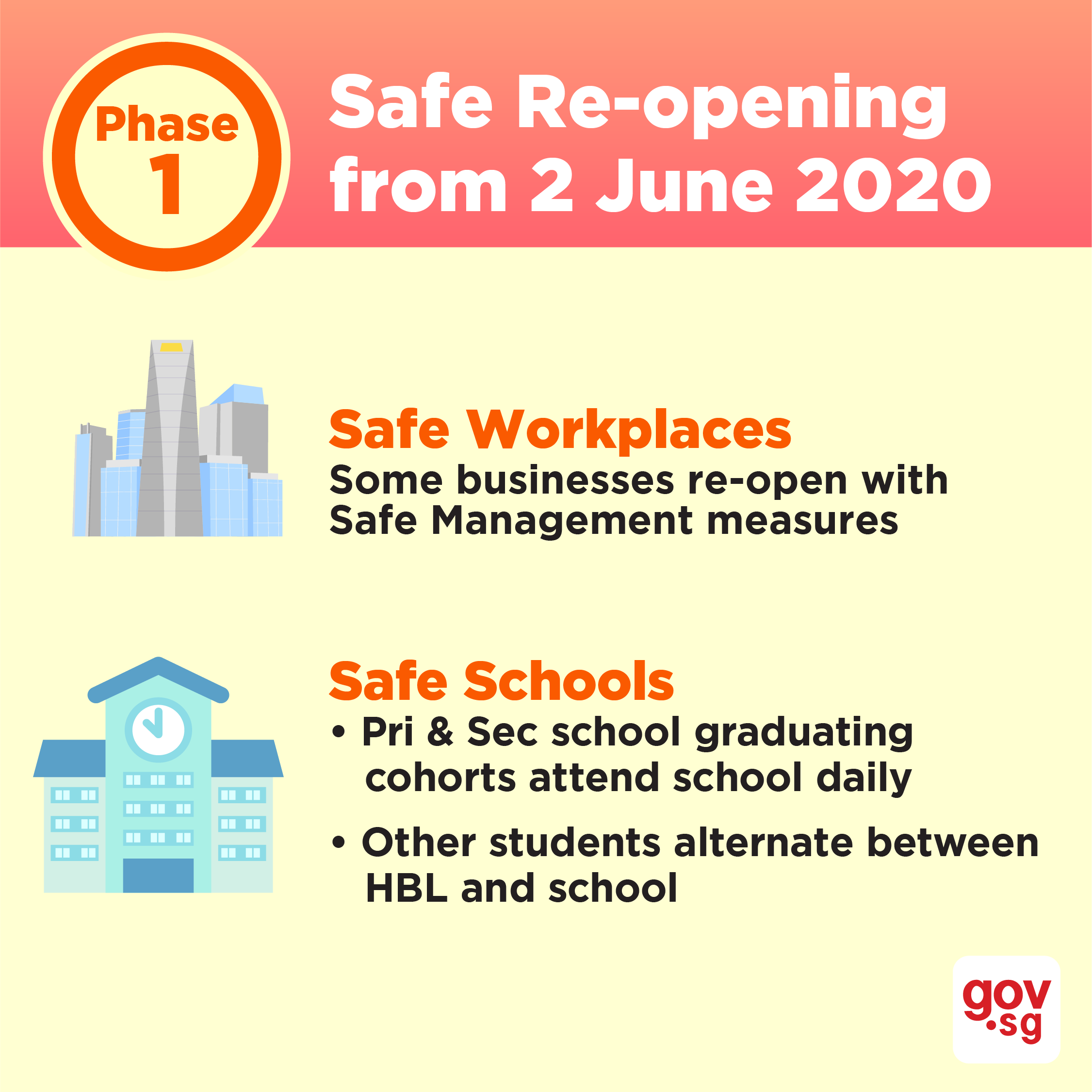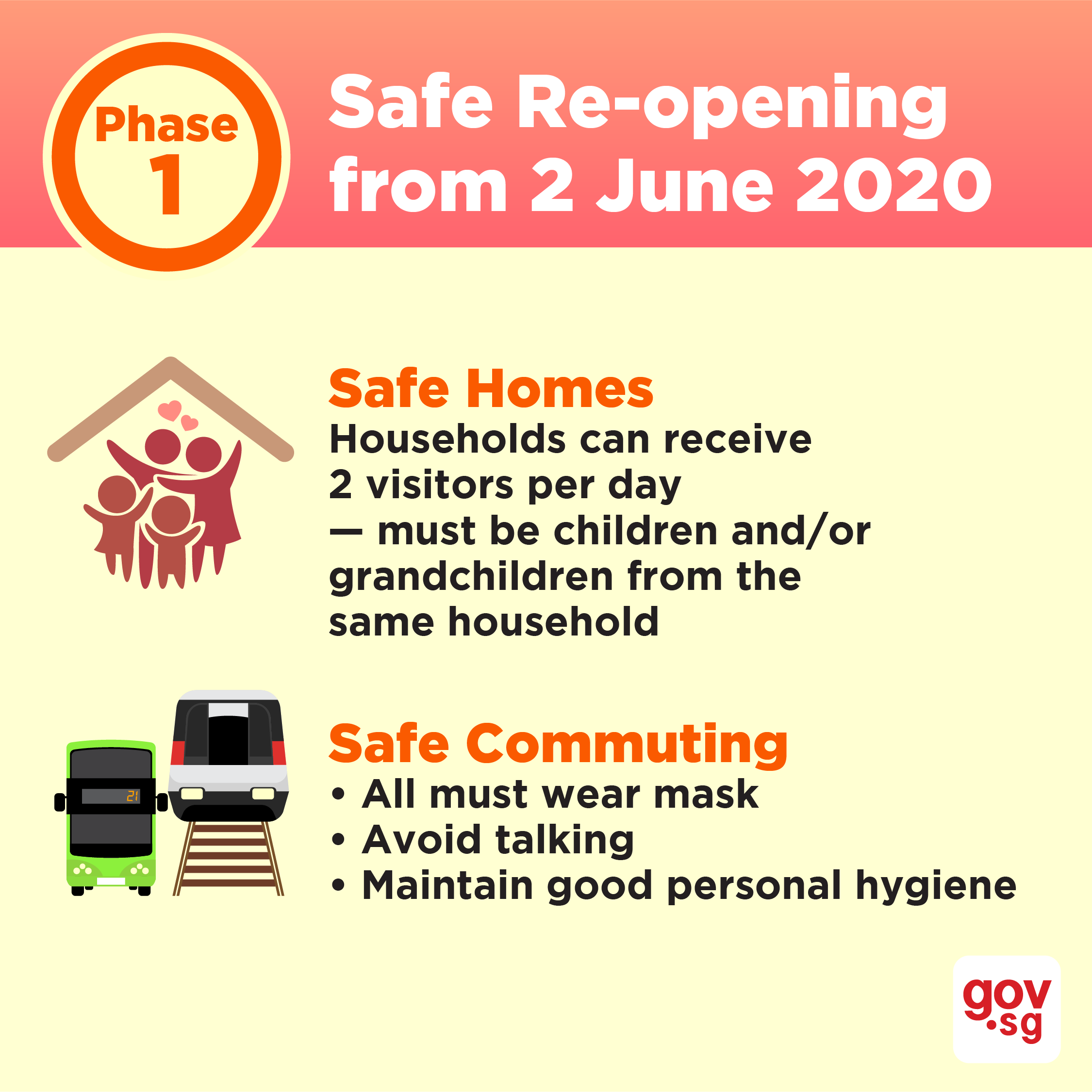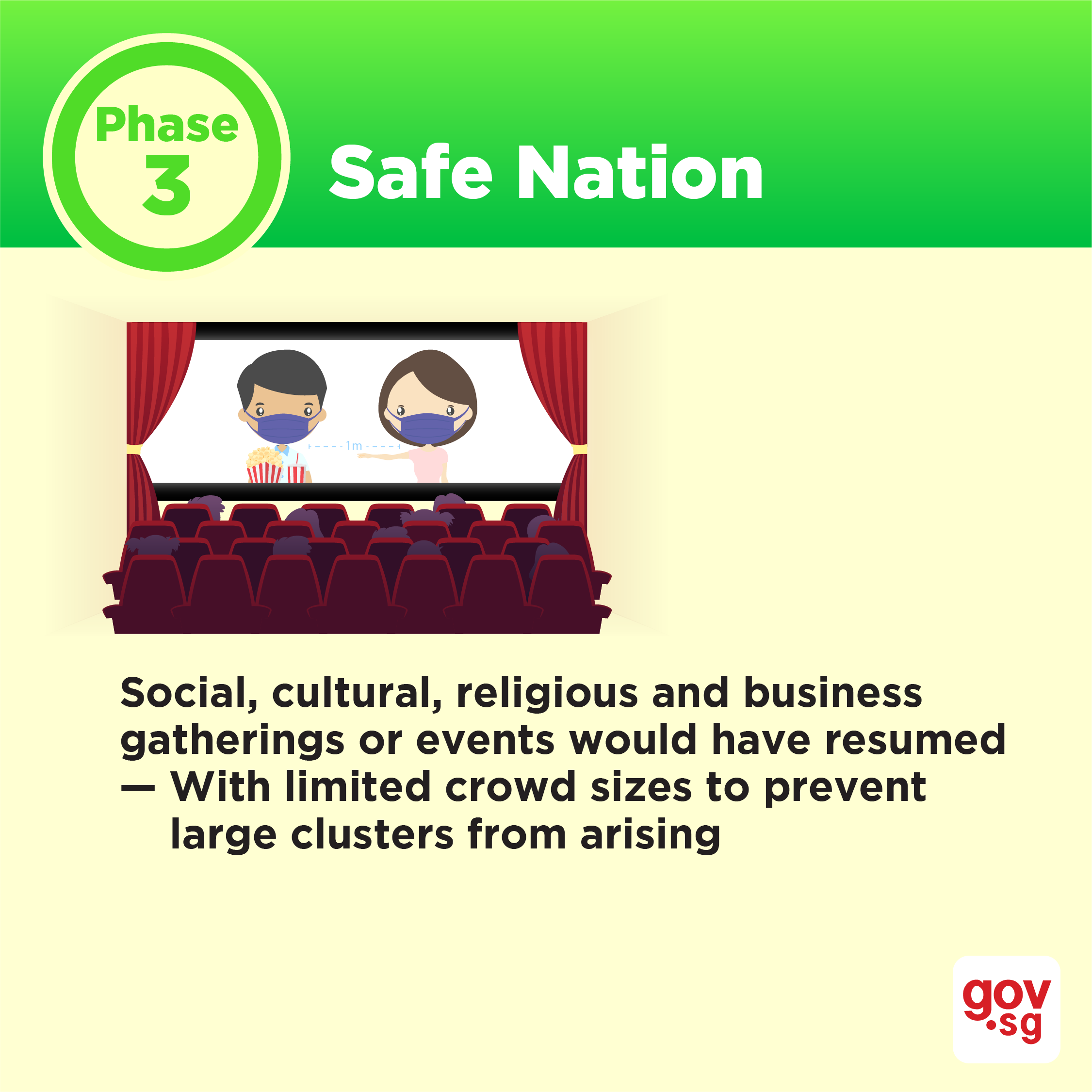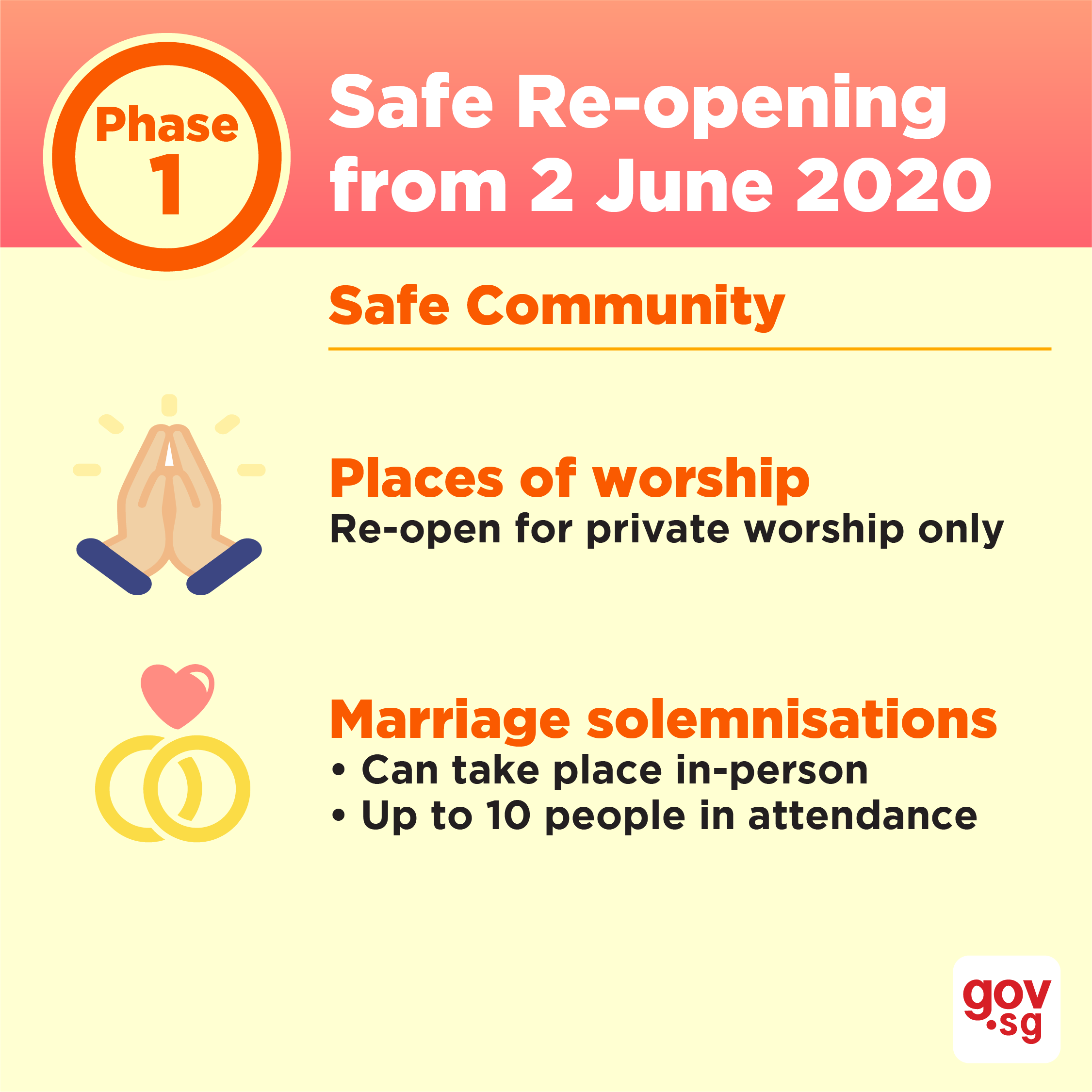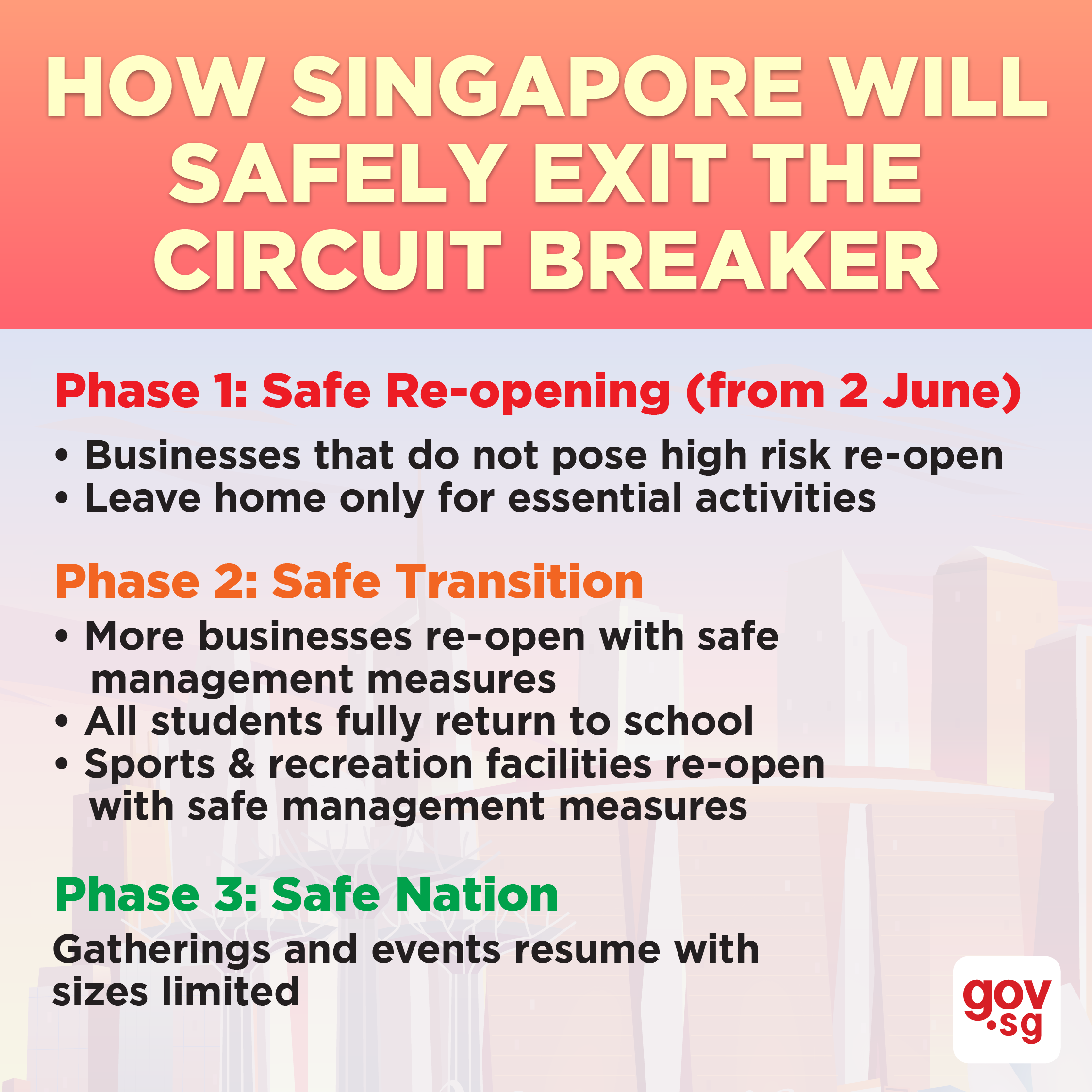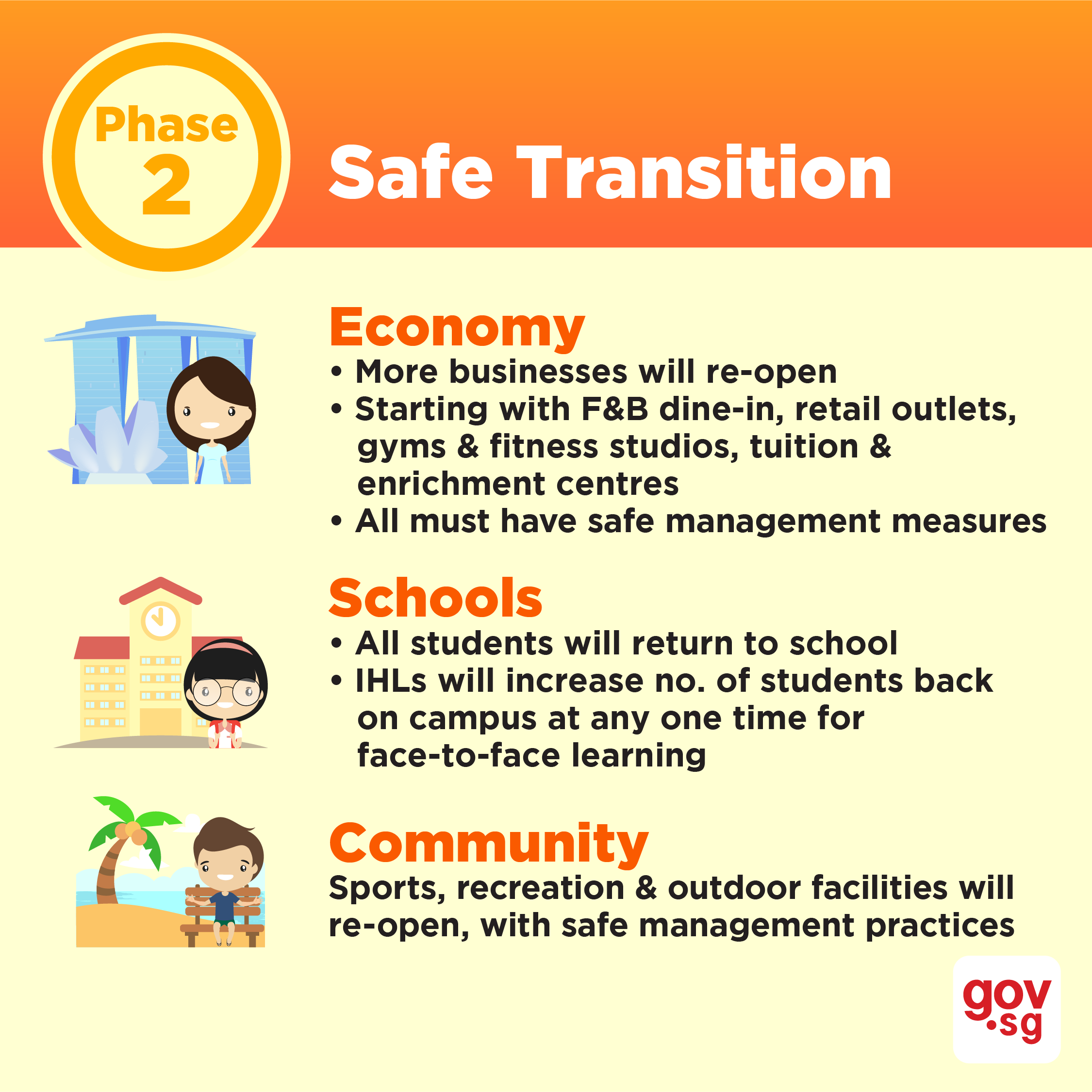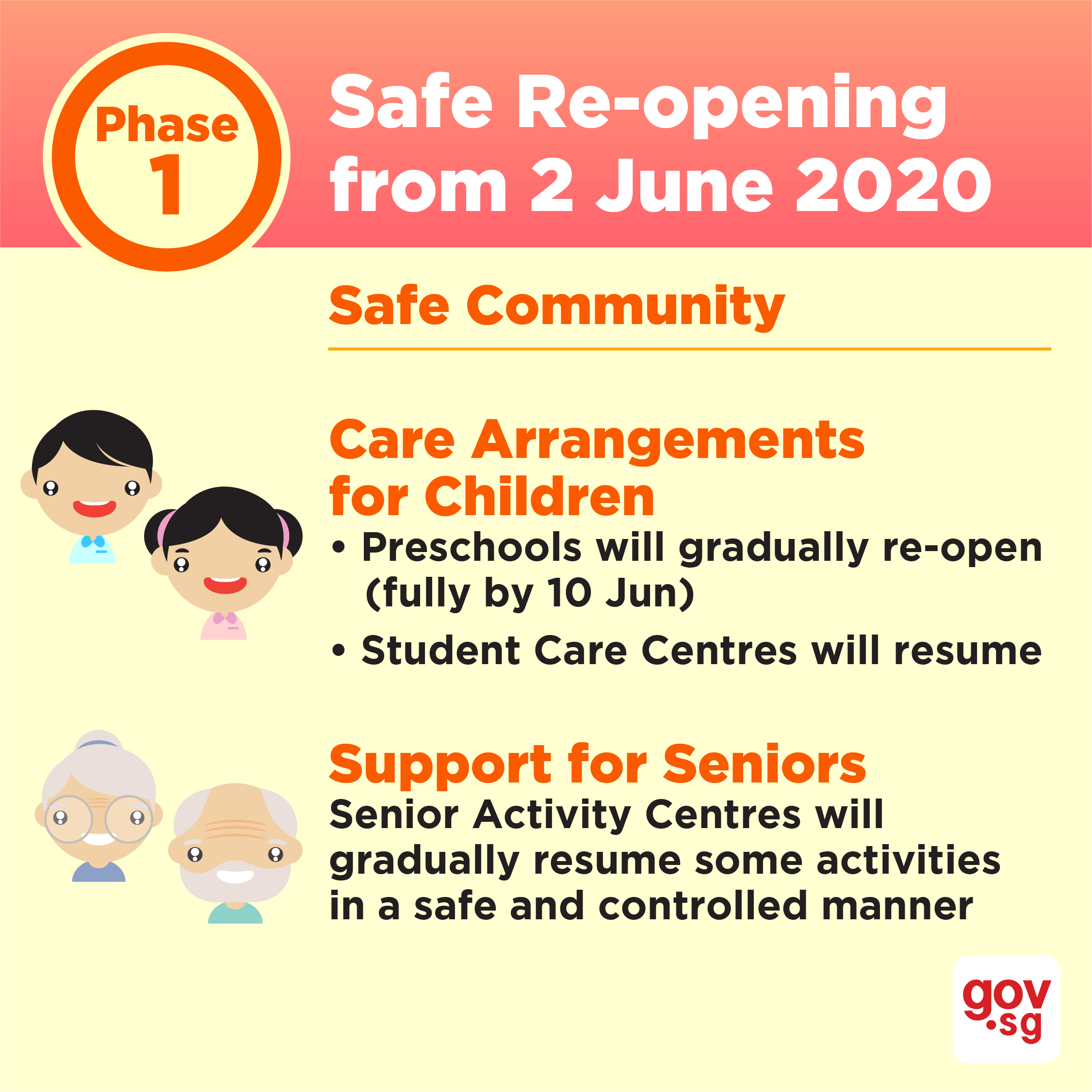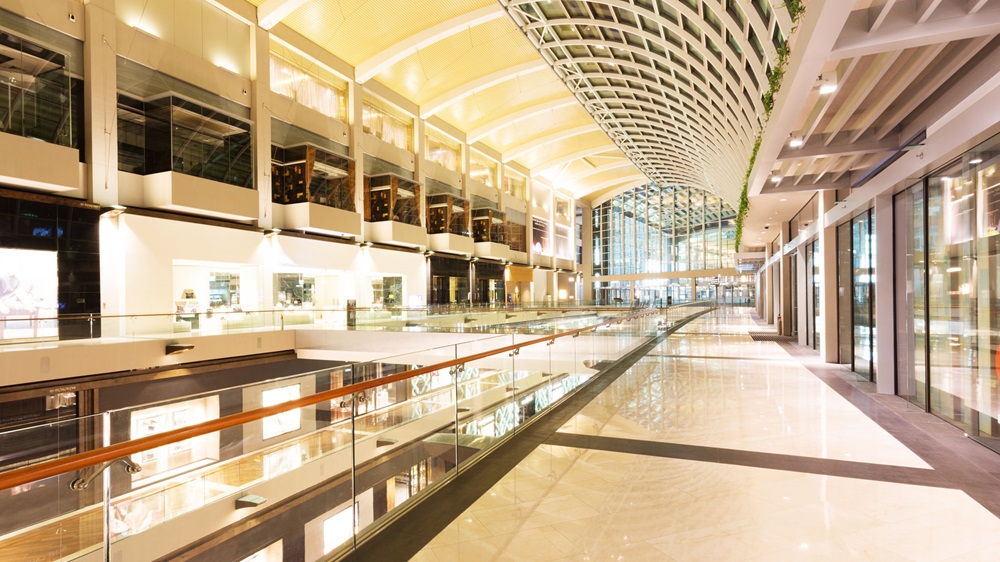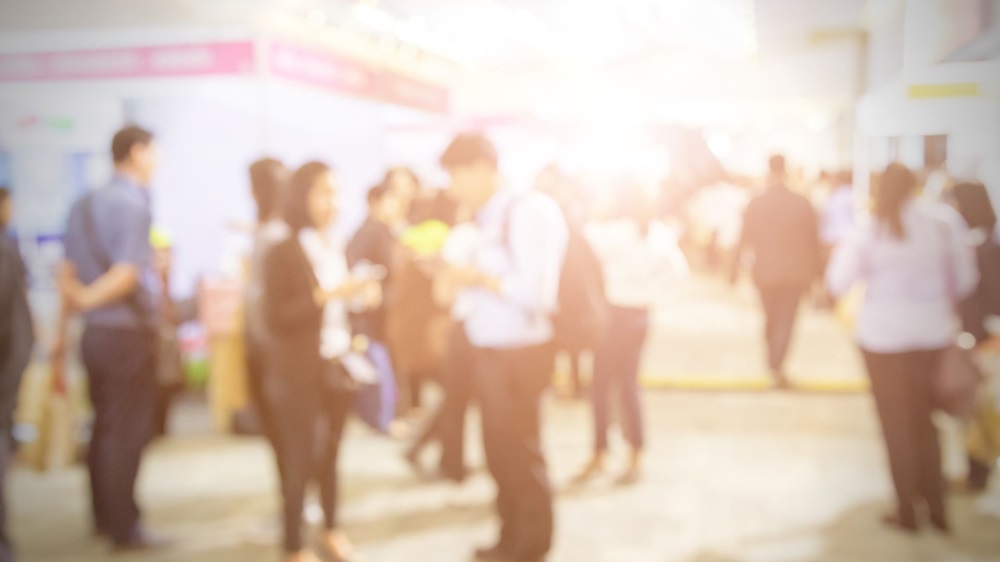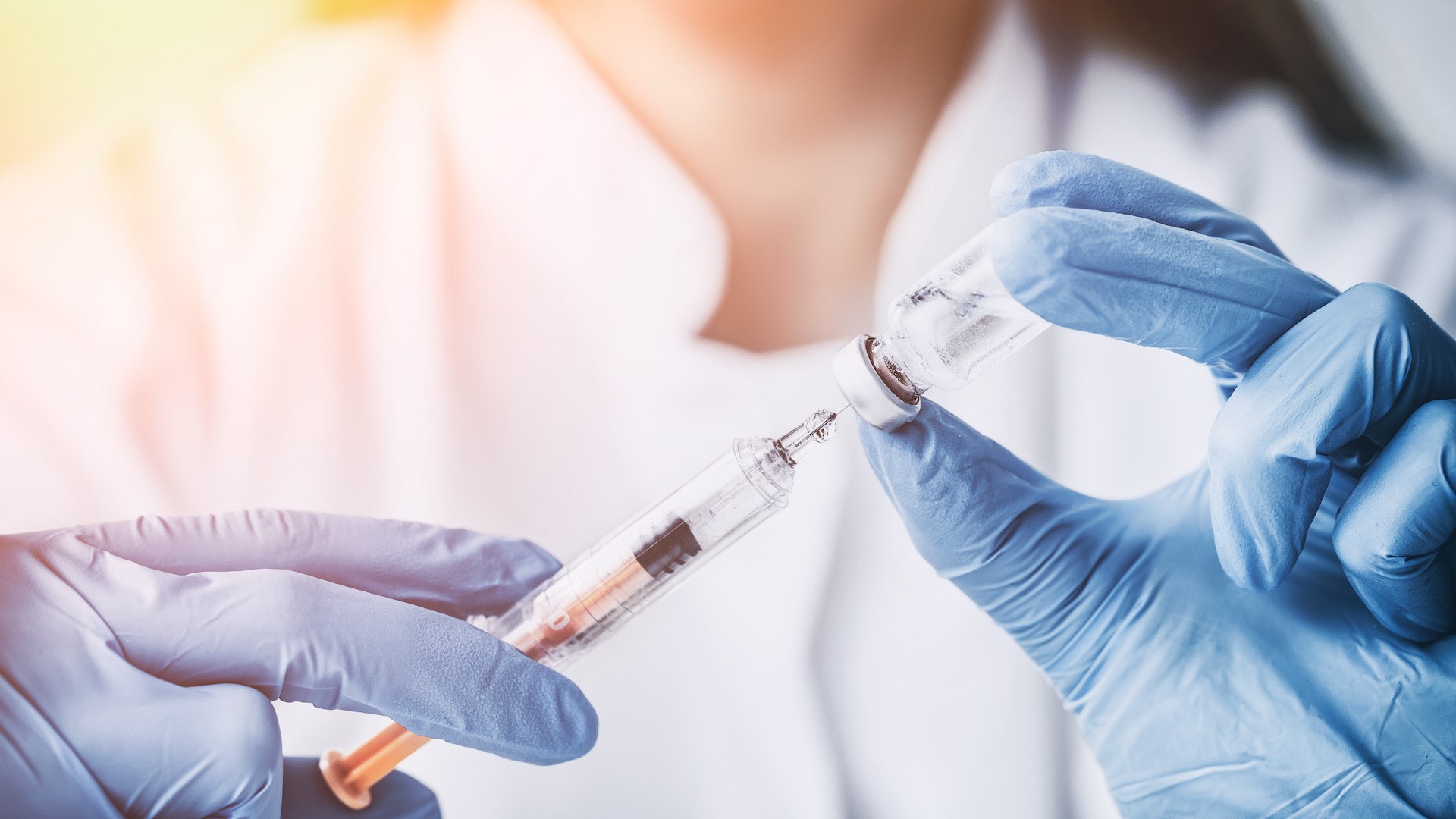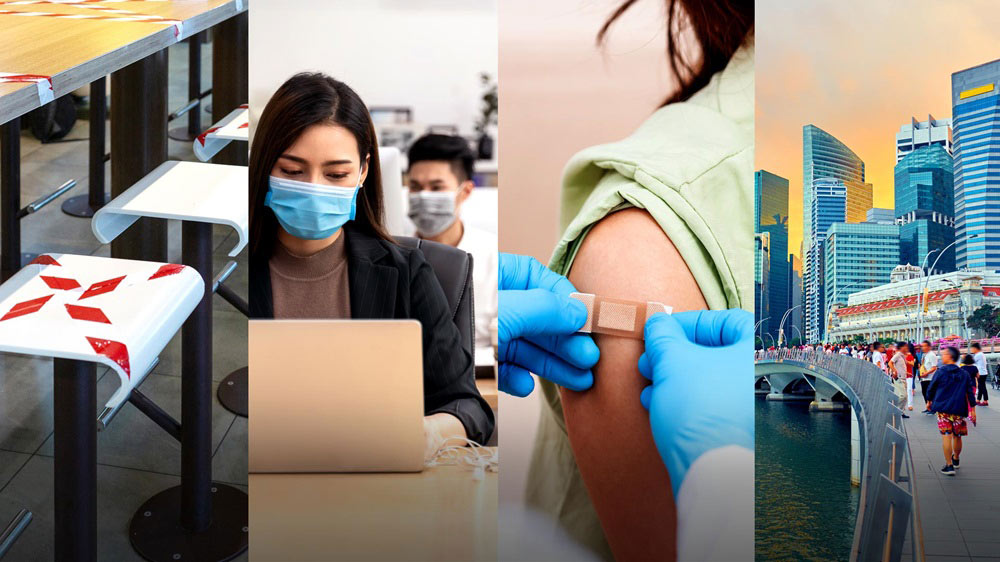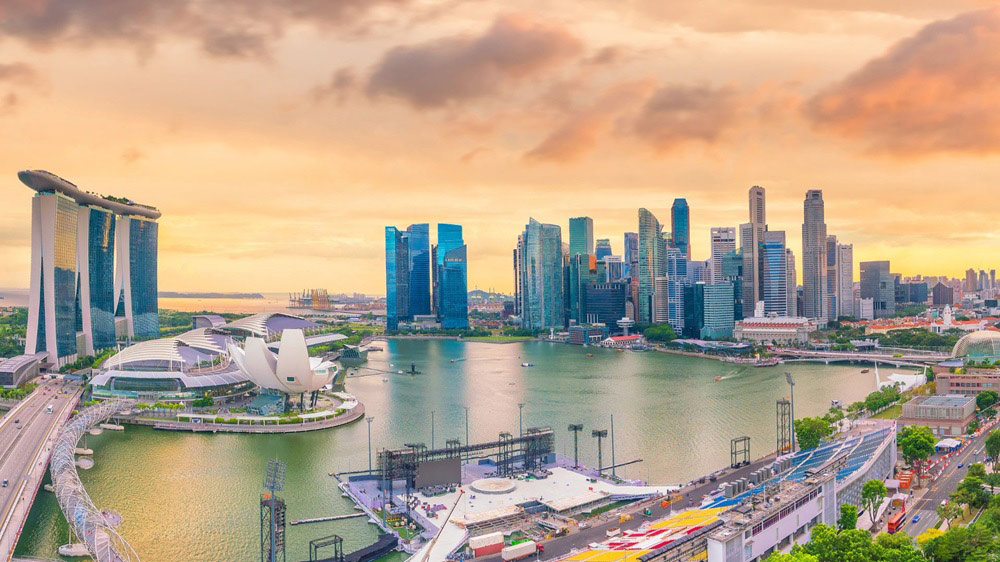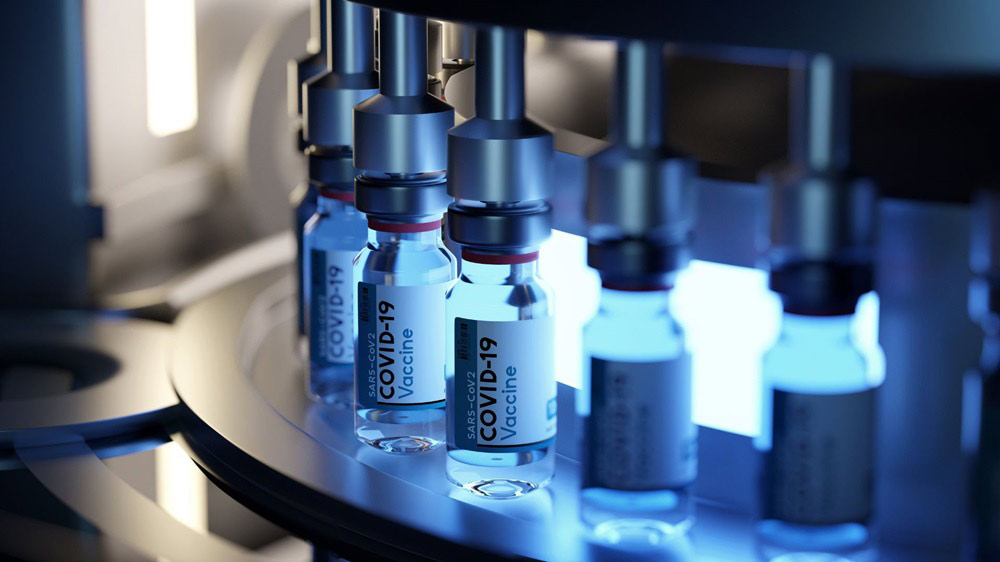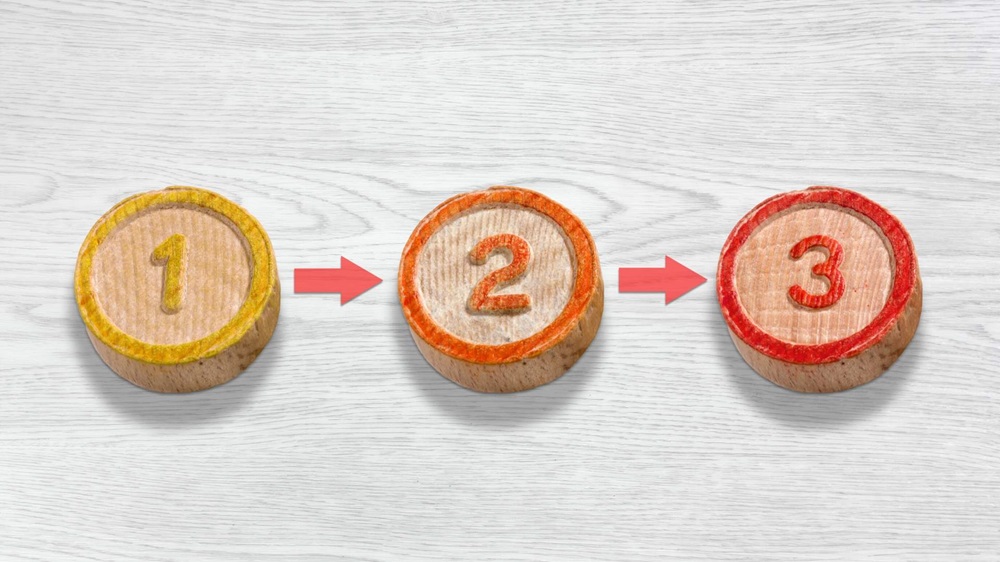
Updated 28 May 2020
The Multi-Ministry Taskforce announced on 19 May 2020 that Singapore will exit the Circuit Breaker when it ends on 1 June, and embark on a three-phased approach to resume activities safely.
While new daily cases would likely increase once activities resume, the Government will continue to detect and contain cases quickly to prevent new clusters from forming.
Here’s what you need to know about the three phases:
Phase One: Safe Re-opening
From 2 Jun 2020, Singapore will gradually re-open economic activities that do not pose high risk of transmission. Social, economic and entertainment activities with a higher risk will remain closed.
Everyone should continue to leave home only for essential activities, and wear a mask when doing so. Seniors should continue to stay at home. Here’s what you need to know:
- Safe Workplaces: Some businesses to re-open with Safe Management measures
More Singaporeans will be allowed to go back to work, starting with businesses that operate in settings with lower risks of transmission. Employees who can telecommute or work from home should continue to do so. Some services will also be allowed to reopen – these include motor vehicle servicing, aircon servicing, basic pet services, and hairdressers or barbers offering all services.
Most retail outlets, dining at F&B outlets and other personal services will not resume operations in this phase.
- Safe Home and Community: Households can receive 2 visitors per day, who must be children and/or grandchildren from the same household
Each household can visit their parents or grandparents staying elsewhere. However, all households are to limited one visit per day, and not more than two persons who must be from the same visiting household. Dropping off children at parents’ and grandparents’ homes for childcare will be allowed.
Marriage solemnisations, funerals and wakes can resume with a maximum of 10 persons. Places of worship are re-open for private worship only.
As we should continue to limit contact with others outside of household members, non-essential activities and social gatherings will continue to be prohibited.
- Safe School: Primary and Secondary school graduating cohorts to attend school daily
Primary and Secondary school students who are in graduating cohorts will attend school daily, while other cohorts will rotate weekly between Home-Based Leaning and returning to school for lessons. All will be required to wear masks or face shields when in school or campus. Student Care Centres will resume, and preschools will reopen gradually.
Co-curricular activities, enrichment activities and tuition will not resume, as these activities encourage mingling across classes and schools.
- Safe Care: Essential care services will continue
Healthcare services, preventive health services, and one-to-one sessions for complementary healthcare services will resume.
All other senior-centric activities will remain suspended to protect our seniors. However, Senior Activity Centres will resume gradually to help seniors with little or no social support.
Phase Two: Safe Transition
The Government will carefully monitor the effects of increased activity in Phase One, and if the community infection rates remain low and stable
over the subsequent two weeks, Phase Two could happen before the end of June.
In Phase Two, more activities will resume. Almost the entire economy will re-open, subject to safe management
measures being in place.
Masks will remain compulsory whenever outside one’s home.
The following activities will resume:
- Retail, F&B, personal health and wellness, home-based services, sports and public facilities: Most businesses will be allowed to resume, with safe management measures, group size and capacity limits in place.
- Social interactions and family visits: Small-group gatherings of up to 5 persons will be allowed. Within one’s home, households may receive up to 5 visitors per day.
- Schools: Schools will fully re-open from end June. Institutes of Higher Learning (IHLs) will gradually increase the number of students back on campus at any one time for face-to-face learning.
For higher-risk activities – which typically involve large numbers of people interacting with one another, often in enclosed space, and for prolonged periods of time – the Government will be engaging businesses and organisations on how and
when they may resume safely, with the necessary safe management measures and safeguards.
Depending on the COVID-19 situation and the Government’s risk assessment, the measures
(e.g. on the size of gatherings) will continue to be eased gradually until we reach a new normal in Phase Three.
Phase Three: Safe Nation
In this phase, Singapore would have reached a new normal. We will likely remain at this state until an effective vaccine or treatment is developed. It is expected that:
- Social, cultural, religious and business gatherings or events would have resumed. However, sizes of gatherings will have to be limited.
- Seniors can safely resume day-to-day activities, while ensuring safe distancing and avoiding crowded places.
Resuming activities safely
As more people will be taking public transport, maintaining physical distancing between commuters will be difficult, especially during
peak periods. Commuters should play their part by wearing masks, refrain from talking, and maintain good personal hygiene.
Singapore will gradually re-open our borders to conduct essential
activities overseas, and to allow safe travel for foreigners entering or transiting Singapore. This will be done in a careful manner with the necessary precautions and safeguards.
The
Government will continue to build capabilities so Singapore can move into the next phase, or ease measures within each phase. This includes:
- Expanding testing capacity to diagnose cases early, screen individuals at risk and protect vulnerable groups. As of 17 May, 290,000 COVID-19 tests have been conducted.
- Speeding up contact tracing to quickly identify and isolate close contacts of infected persons
- Ensuring sufficient healthcare capacity to deal with potential surges in COVID-19 cases, so Singaporeans and our fellow residents (including migrant workers) will receive the necessary healthcare
Read more here.
We use cookies to tailor your browsing experience. By continuing to use Gov.sg, you accept our use of cookies. To decline cookies at any time, you may adjust your browser settings. Find out more about your cookie preferences here .









